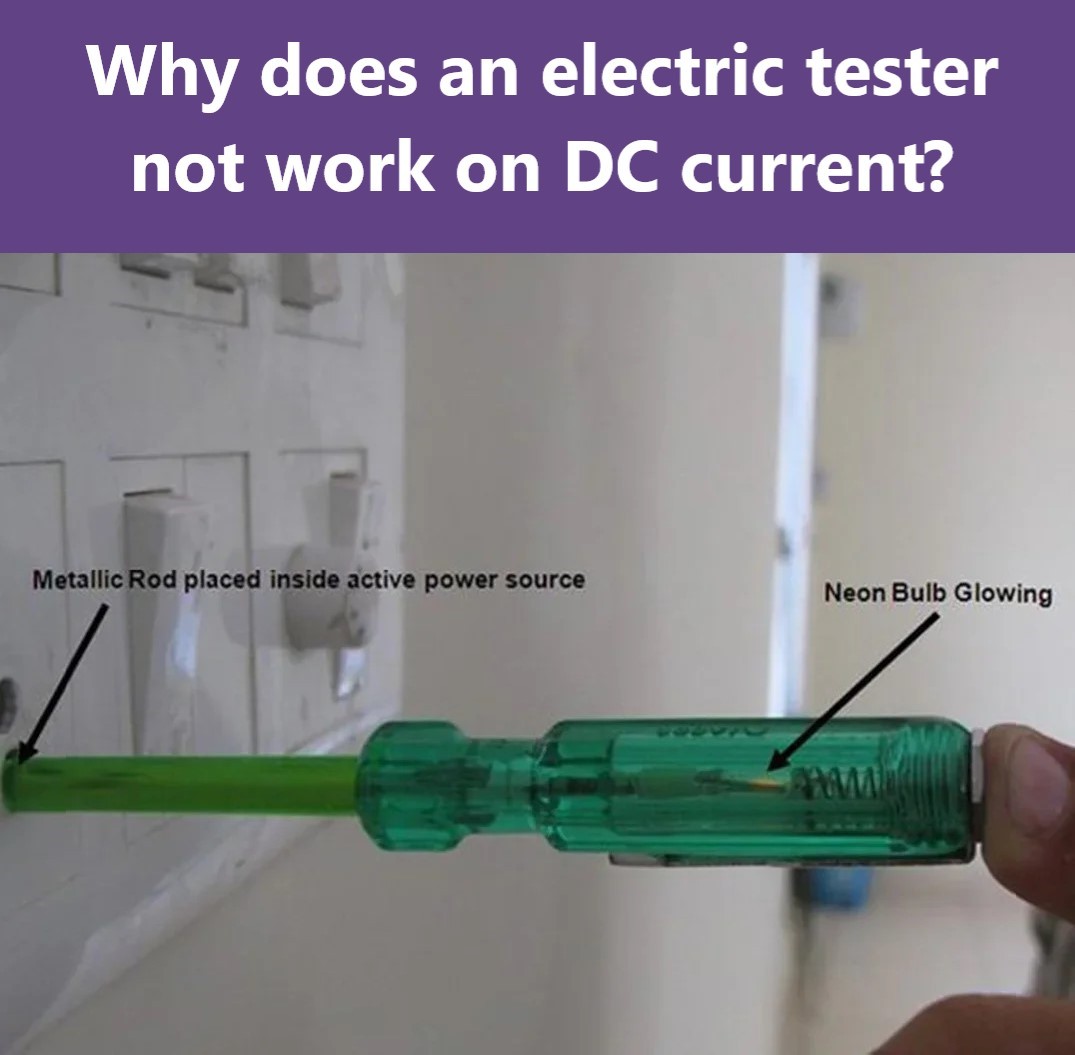
Why does an electric tester not work on DC current?
An electrical tester is a device that detects the presence of voltage in a cable or outlet.
It works by sensing a small amount of current that is capacitively coupled from the live circuit to the tester and returned to the ground.
The tester is equipped with a neon lamp that lights up when there is sufficient voltage, usually around 80 volts¹. The electrical tester does not work with direct current because the capacitors and transformers used to couple the current do not work with direct current.
Direct current
has constant polarity and does not change direction like alternating current. Therefore, the tester cannot detect a voltage difference between the live line and ground².
If you want to test a DC circuit, you will need another device, such as a multimeter, that can measure the actual voltage level on the wire. The multimeter can also measure other electrical properties such as resistance and current³.
However, be careful when using a multimeter on a live circuit, as using incorrect settings or probes may result in a short circuit or damage to the meter.
Always read and follow the instructions and warnings provided with your multimeter before using it.
